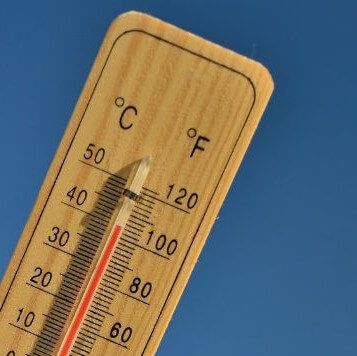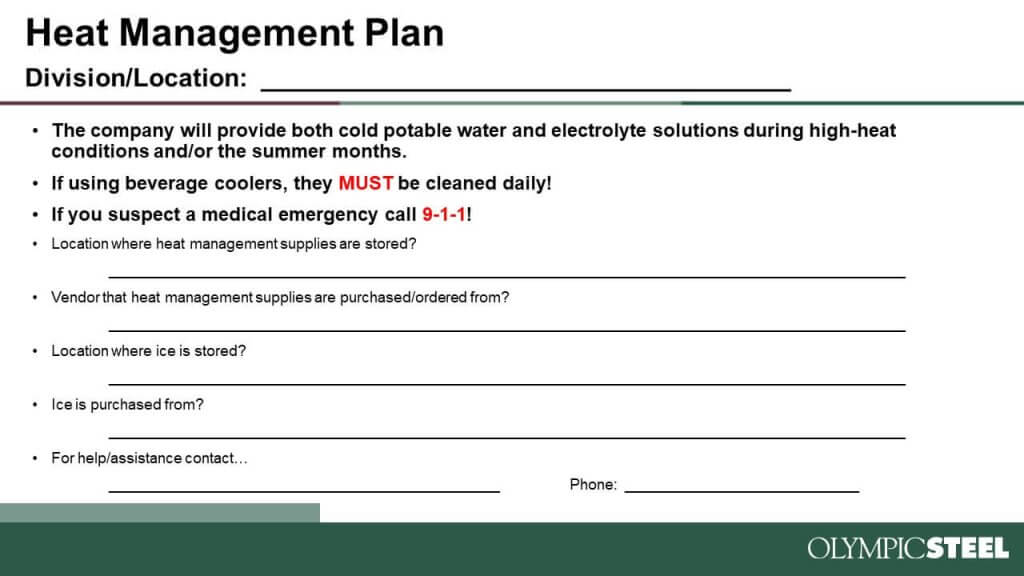
Heat Management Program
Taking extra precautions, like staying hydrated during high-heat conditions, reduces your risk of heat exposure illnesses during the summer months.
Managing heat exposure for our team members is essential. At home, high temperatures can affect you when doing any usual activity like yardwork, exercising or simply being outside.
High heat conditions can be dangerous to people’s health, particularly the elderly, young, sick and poor. Here’s what you can do to help prevent heat-related illnesses and death:
- Stay hydrated
- Seek shade – under a tree is best, but a wide-brimmed hat, tent/canopy or umbrella work, too
- In extreme heat, save the work for a cooler day.
- Use fans or air conditioners to maintain a comfortable temperature indoors
- Check on your family, friends and neighbors on hot days to make sure they’re staying hydrated and cool.
At work, protocols are outlined in our Heat Management Program that explain what’s required of all divisions, including providing heat management supplies like these:
- Cooling hats or headbands
- Cooling vests
- Portable coolers and beverage coolers
- Electrolyte solutions
- Ice
- Fans
Types of Heat Illness
Heat exhaustion and heat stroke are two common heat illnesses. Knowing the early warning signs for each illness can help you mitigate the symptoms for yourself and others, so you can take the necessary steps to restore your health.
- Heat Exhaustion Symptoms – dizziness, headaches, sweaty skin, fast heartbeat, nausea/vomiting, weakness and cramps
- Heat Stroke Symptoms – red skin, hot skin, dry skin, high body temperature, confusion, fainting and convulsions
Why Hydration Matters
Staying hydrated is key when the weather heats up. No amount of training or acclimatization can reduce the body’s need for water. Follow the water consumption guidelines below to determine an appropriate water intake to stay hydrated while working in temperatures ranging from 78º to over 90º.
Water Consumption Table

Hydrated or Dehydrated?
With normal kidney function, your level of hydration is indicated by the color of your urine. Since heat-related illness often follows dehydration, here’s a simple check: If your urine is more concentrated (darker in color), grab some water! You may need more fluids.
Learn More
The document below is on display at each location. Look for it to learn more about your division’s Heat Management Plan details, including where supplies are stored and who to contact for assistance.

For questions, additional information or support, please contact your local Safety Contact or Tony Dominic, Director – Safety, Health & Environment, at Tony.Dominic@olysteel.com.
Safety First. Always. And, it starts with me.
